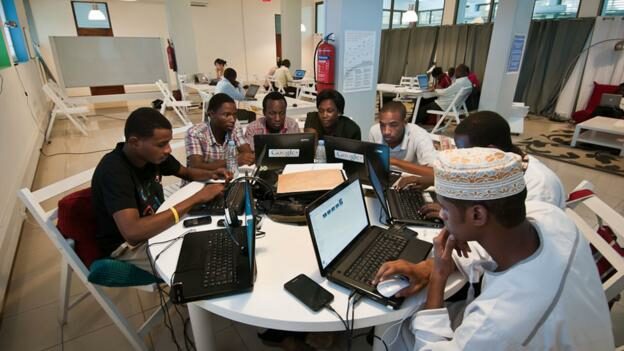7 African Startups Revolutionizing Education, Work, Daily Life, and Local Markets

7 African startups revolutionizing healthcare, workforce management, e-commerce, and education
Startups On Our Radar highlights innovative African startups addressing continent-specific challenges. In our previous issue, we showcased seven trailblazing companies advancing payments, AI, commerce, and mobility. Look out for the next update on October 10, 2025.
This edition spotlights seven African startups making waves in edtech, healthcare, HR, and e-commerce. Here’s a closer look:
1. PaveHQ aims to streamline the journey from education to employment on a single platform (Edtech, Nigeria)
PaveHQ is a tech-enabled platform designed to assist students in exploring academic and career options. Users create profiles, upload essential documents like transcripts or diplomas, and utilize an advanced search tool to filter institutions by tuition, location, or field of study. The platform allows applicants to submit applications to up to 10 international universities simultaneously, eliminating the need to visit each school’s website individually. Additional features include direct communication with PaveHQ advisors, automated payment processing, and real-time AI chat support.
Users pay a one-time fee of $150, which covers applications to three institutions; extra applications cost $50 each. When a student enrolls at a partner university, PaveHQ receives a commission based on tuition fees.
Career services are planned but not yet launched, adding to the platform’s future potential.
Why we’re tracking this: In 2024, more than 20,000 Nigerian students enrolled in US higher education institutions, marking a 13.5% rise from the previous year. Unlike global platforms such as ApplyBoard and Common App, PaveHQ integrates comprehensive guidance tools alongside application services. Upcoming features include a Career Pathway Automation System (CPAS) that employs psychometric assessments to identify students’ strengths and preferences, connecting them with career counselors for tailored advice. The platform also plans to offer job matching and internship application services for university students.
2. Fertitude is expanding access to reproductive health services for African women (Healthcare, Nigeria)
Fertitude began in 2023 as a confidential community for women. Recognizing the need to link users to appropriate care through anonymous discussions, it evolved into a healthcare platform facilitating reproductive health access. The app enables menstrual cycle tracking, provides educational content about women’s health, and offers a marketplace connecting users with specialists such as gynecologists, psychologists, pelvic floor therapists, and nutritionists.
An AI health assistant allows users to raise concerns or ask questions about bodily symptoms. This assistant monitors user inputs and medical history to suggest next steps or connect users with relevant healthcare professionals. The AI is trained on medical data and adapts to individual user patterns.
Why we’re watching: Fertitude differentiates itself from popular period trackers like Flo by offering a culturally attuned platform tailored to African women’s needs, with enhanced support features. It operates on a freemium model, with premium subscriptions starting at ₦2,500 ($1.70) monthly, significantly lower than Flo’s $11.49 fee. Premium users gain access to on-demand doctors. Fertitude also earns commissions from consultations booked via the app and plans to introduce healthcare financing options for users requiring credit. Since launching in 2024, it has attracted 6,000 users.
3. Peercheck is building Africa’s equivalent of Glassdoor (HRTech, Nigeria)
Peercheck is developing what its founders describe as the “data foundation for Africa’s workforce.” The platform addresses the scarcity of reliable information on job interviews, workplace culture, and salary benchmarks across African industries. It empowers employees and contractors to share candid reviews of their employers, while companies can respond to feedback and manage their reputations.
The platform features two main components: one for professionals to post company reviews, and another for organizations to engage with these reviews.
Why we’re paying attention: Peercheck plans to launch a data-as-a-service (DaaS) offering that transforms raw data into actionable insights. The platform is expected to go live by late October. Future updates include peer endorsements akin to LinkedIn recommendations. While Careers24 experimented with company reviews in Nigeria in 2016, it ceased operations in 2019 due to limited traction. Peercheck believes its focus on reviews rather than job listings will enable it to succeed where others have struggled.
4. YoguPay is building Africa’s backbone for cross-border payments (Fintech, Kenya)
Founded in 2023, YoguPay offers a payment infrastructure that simplifies and reduces the cost of cross-border transactions for African enterprises. The platform connects banks, fintech firms, remittance services, and Web3 platforms to both traditional and digital asset payment rails via a unified API. Businesses can open virtual, multicurrency International Bank Account Numbers (IBANs) to hold USD and GBP accounts from Africa.
YoguPay enables companies to make supplier payments and receive international funds within 24 hours. It is registered with Canada’s Financial Transactions and Reports Analysis Centre and partners with Tier 1 African banks and global payment processors. To date, it has processed over $500 million in transactions for more than 200 clients across 30 countries.
Revenue streams include transaction fees and subscription plans for its wallet-as-a-service product, which allows financial institutions to launch multi-asset digital wallets supporting fiat currencies and stablecoins.
Why we’re watching: Africa’s cross-border payments sector is forecasted to hit $1 trillion by 2035. YoguPay positions itself as a homegrown alternative to players like Kotani Pay, Yellow Card, and Busha, offering competitive foreign exchange rates below 1%. The platform supports over 20 currencies, allows scheduled payouts, and incorporates anti-money laundering measures to ensure secure and transparent transactions.
5. LocalEats empowers local eateries to embrace digital transformation (Foodtech, Nigeria)
LocalEats is a digital marketplace tailored for local restaurants and food vendors, many of which operate informally and lack access to technology. The platform serves as a gateway for these businesses to establish an online presence and digitize operations.
Beyond order facilitation, LocalEats offers backend management tools that help vendors track orders, build customer trust, and maintain accurate sales and expense records. These bookkeeping functions can be manually entered via mobile devices, and LocalEats provides staff support for vendors unable to input data themselves. The system generates financial analyses to help businesses optimize profitability and sustainability.
LocalEats has partnered with food delivery services like Chowdeck, enabling vendors to receive orders through integrated APIs and increase visibility. The startup earns revenue through service fees on orders.
Why we’re watching: LocalEats distinguishes itself by combining food delivery with vendor management and bookkeeping, positioning as a collaborator rather than a competitor to existing delivery platforms. It targets street-level food vendors, bringing structure to informal businesses. Since its MVP launch in January 2024, LocalEats has onboarded over 100 vendors in Lagos and Ibadan and fulfilled more than 30,000 orders.
6. Cofilo simplifies international online shopping for Cameroonians (E-commerce & Logistics, Cameroon)
Originally known as Mansa, Cofilo streamlines purchasing from global online retailers. The platform integrates payment solutions with logistics to address challenges founder Jim Bakoume observed when buying from international stores. Users can browse products from retailers like Temu, Shein, and Aliexpress, pay via mobile money, and receive deliveries through Cofilo’s logistics partners.
Cofilo operates as a publisher through marketing platforms and APIs such as the CG Pro Prints Integration API, enabling it to showcase international stores on its platform.
Why we’re watching: By merging commerce, payment, and delivery services, Cofilo facilitates access to foreign goods in underserved Cameroonian regions. It charges a 15% fee per order and offers shipment tracking from purchase to delivery. Since its 2023 launch, Cofilo has shipped over 1,600 items with an average order value of $100, generating more than $18,000 in revenue over the past year.
7. ImpulseCRM consolidates sales workflows into a single platform (CRM/SaaS, Nigeria)
ImpulseCRM, founded by Timothy Adeolu, addresses the fragmentation and data challenges faced by business owners. The platform integrates email, calendars, chat-like conversations, and public data into one workspace, enabling users to identify and engage potential customers efficiently.
Its AI-powered prospecting tool automatically curates lists of potential clients based on user-defined criteria. For instance, a business seeking accountants for targeted campaigns can rely on ImpulseCRM to update prospects continuously, sourcing information from LinkedIn, websites, and other public data.
Additional features include document editors, spreadsheets, note-taking, and task management, all designed to unify the user experience. The AI leverages popular models like OpenAI.
Why we’re watching: Unlike global competitors such as HubSpot and Salesforce, which offer multiple disjointed tools at varying price points, ImpulseCRM’s all-in-one approach aims to attract B2B and growth-stage startups. Users link their email and calendar, and the platform automatically builds company profiles from past interactions. It operates on a subscription basis, occasionally offering credit options depending on workflow needs. Since its September 2024 launch, ImpulseCRM has onboarded 16 users.
That wraps up this edition. Look out for our next update on October 10th. Know a startup we should highlight? Submit your nomination here.
Save the date! Moonshot by TechCabal returns to Lagos on October 15-16! Join Africa’s leading founders, creatives, and tech innovators for two days of inspiring talks, networking, and forward-thinking ideas. Secure your tickets now at moonshot.techcabal.com









Leave a Reply